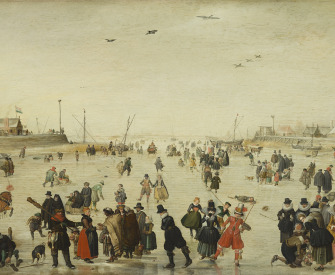“Work” does not exist in a nonliterate world. The primitive hunter or fisherman did no work, any more than does the poet, painter, or thinker of today. Where the whole man is involved there is no work.
—Marshall McLuhan, 1964Trading Commodities
Preventing damage to the pocketbook and to the soul.
The recognition of our own mistakes should not benefit us any more than the study of our successes. But there is a natural tendency in all men to avoid punishment. When you associate certain mistakes with a licking, you do not hanker for a second dose, and of course, all stock-market mistakes wound you in two tender spots—your pocketbook and your vanity. But I will tell you something curious: a stock speculator sometimes makes mistakes and knows that he is making them. And after he makes them, he will ask himself why he made them—and after thinking over it cold-bloodedly a long time after the pain of punishment is over, he may learn how he came to make them, and when, and at what particular point of his trade—but not why. And then he simply calls himself names and lets it go at that.
Of course, if a man is both wise and lucky, he will not make the same mistake twice. But he will make any one of the ten thousand brothers or cousins of the original. The mistake family is so large that there is always one of them around when you want to see what you can do in the fool-play line.
To tell you about the first of my million-dollar mistakes I shall have to go back to this time when I first became a millionaire, right after the big break of October 1907. As far as my trading went, having a million merely meant more reserves. Money does not give a trader more comfort, because, rich or poor, he can make mistakes and it is never comfortable to be wrong. And when a millionaire is right, his money is merely one of his several servants. Losing money is the least of my troubles. A loss never bothers me after I take it. I forget it overnight. But being wrong—not taking the loss—that is what does the damage to the pocketbook and to the soul. You remember Dickson G. Watts’ story about the man who was so nervous that a friend asked him what was the matter.
“I can’t sleep,” answered the nervous one.
“Why not?” asked the friend.
“I am carrying so much cotton that I can’t sleep thinking about it. It is wearing me out. What can I do?”
“Sell down to the sleeping point,” answered the friend.
As a rule a man adapts himself to conditions so quickly that he loses the perspective. He does not feel the difference much—that is, he does not vividly remember how it felt not to be a millionaire. He only remembers that there were things he could not do that he can do now. It does not take a reasonably young and normal man very long to lose the habit of being poor. It requires a little longer to forget that he used to be rich. I suppose that is because money creates needs or encourages their multiplication. I mean that after a man makes money in the stock market, he very quickly loses the habit of not spending. But after he loses his money it takes him a long time to lose the habit of spending.
After I took in my shorts and went long in October 1907, I decided to take it easy for a while. I bought a yacht and planned to go off on a cruise in southern waters. I am crazy about fishing, and I was due to have the time of my life. I looked forward to it and expected to go any day. But I did not. The market wouldn’t let me.
I always have traded in commodities as well as in stocks. I began as a youngster in the bucket shops. I studied those markets for years, though perhaps not so assiduously as the stock market. As a matter of fact, I would rather play commodities than stocks. There is no question about their greater legitimacy, as it were. It partakes more of the nature of a commercial venture than trading in stocks does. A man can approach it as he might any mercantile problem. It may be possible to use fictitious arguments for or against a certain trend in a commodity market—but success will be only temporary, for in the end the facts are bound to prevail, so that a trader gets dividends on study and observation, as he does in a regular business. He can watch and weigh conditions, and he knows as much about it as anyone else. He need not guard against inside cliques. Dividends are not unexpectedly passed or increased overnight in the cotton market or in wheat or corn. In the long run commodity prices are governed but by one law—the economic law of demand and supply. The business of the trader in commodities is simply to get facts about the demand and the supply, present and prospective. He does not indulge in guesses about a dozen things as he does in stocks. It always appealed to me—trading in commodities.
Of course, the same things happen in all speculative markets. The message of the tape is the same. That will be perfectly plain to anyone who will take the trouble to think. He will find if he asks himself questions and considers conditions, that the answers will supply themselves directly. But people never take the trouble to ask questions, leave alone seeking answers. The average American is from Missouri everywhere and at all times, except when he goes to the brokers’ offices and looks at the tape, whether it is stocks or commodities. The one game of all games that really requires study before making a play is the one he goes into without his usual highly intelligent preliminary and precautionary doubts. He will risk half his fortune in the stock market with less reflection than he devotes to the selection of a medium-priced automobile.
Edwin Lefèvre
From Reminiscences of a Stock Operator. Born in modern-day Panama in 1871, Lefèvre entered the world of journalism by collecting commodity prices for a New York newspaper in the 1890s. His book is a fictionalized account of the life of Jesse Livermore, a trader famous for reportedly making $100 million by short-selling before the crash of 1929. Alan Greenspan called Lefèvre’s book “a font of investing wisdom.”



